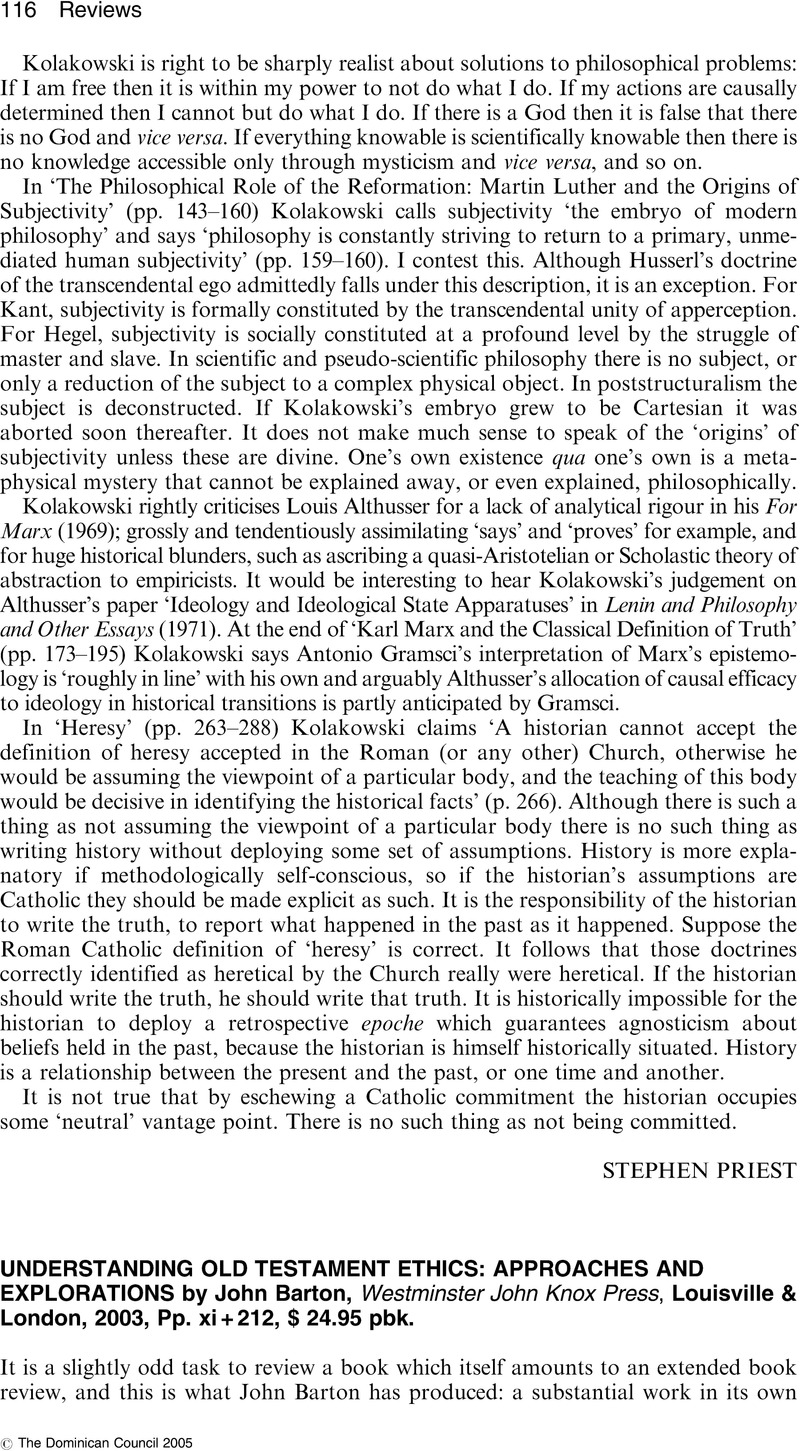No CrossRef data available.
Article contents
Understanding old Testament Ethics: Approaches and Explorations by John Barton, Westminster John Knox Press, Louisville & London, 2003, Pp. xi + 212, $24.95 pbk.
Review products
Understanding old Testament Ethics: Approaches and Explorations by John Barton, Westminster John Knox Press, Louisville & London, 2003, Pp. xi + 212, $24.95 pbk.
Published online by Cambridge University Press: 01 January 2024
Abstract
An abstract is not available for this content so a preview has been provided. Please use the Get access link above for information on how to access this content.

- Type
- Reviews
- Information
- Copyright
- Copyright © The Dominican Council/Blackwell Publishing Ltd 2005


